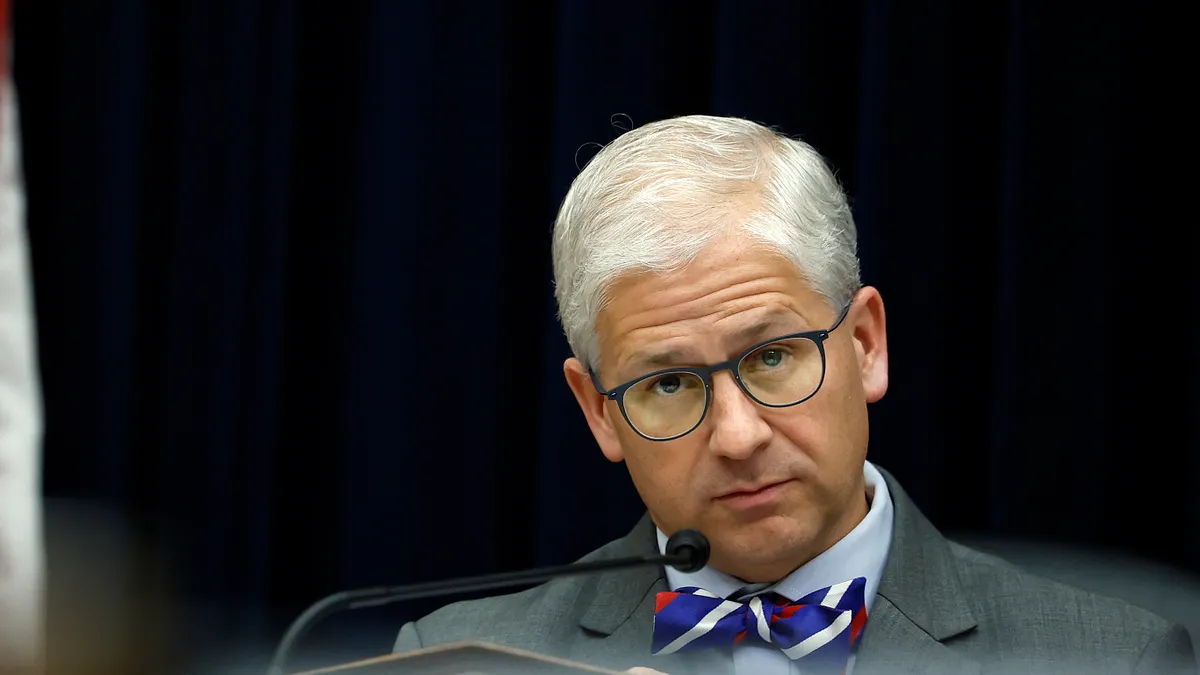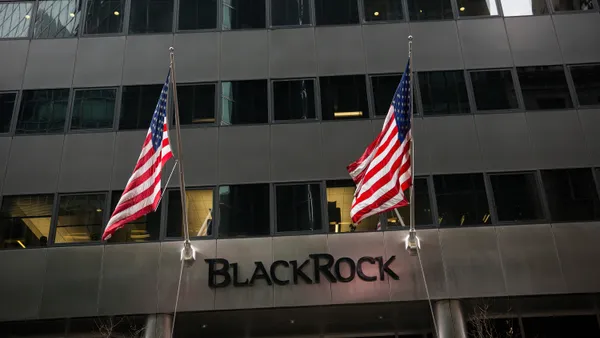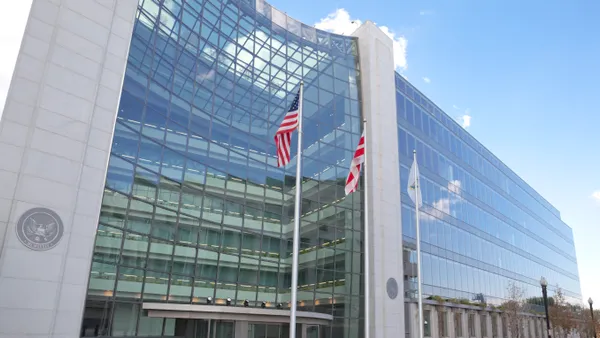Dive Brief:
- The House Financial Services Committee held a hearing Wednesday to begin the markup process for a congressional rebuke of the Securities and Exchange Commission’s paused climate-risk disclosure rule.
- The rule was finalized last month without proposed requirements for companies to disclose scope 3 emissions and a slimmer universe of scope 1 and 2 reporting companies. However, legal challenges were immediately filed despite the changes.
- Committee Chair Patrick McHenry, a North Carolina Republican, said the agency’s choice to voluntarily stay the rule last week was “not enough.” The one-time House speaker pro-tempore said unless SEC Chair Gary Gensler and the agency “abandon this regulatory power grab … [the] Republican House will be forced to act.”
Dive Insight:
The only piece of legislation on the hearing’s docket was a Congressional Review Act challenge to the rule, which was not yet filed. Should a joint resolution of disapproval pass the House and Senate, the rule would be eliminated — absent a presidential veto, according to the Congressional Research Service.
The hearing was at times contentious and featured witness testimony from two former SEC officials, two university professors and Chris Wright, CEO of Colorado-based Liberty Energy. Wright and his company represent one of the nine court cases filed to stop the agency’s climate-risk disclosure regulation.
Liberty Energy, an oilfield and natural gas services company, and Nomad Proppant Services, a frac sand and services company, had previously gotten the rule temporarily suspended in the U.S. Fifth Circuit of Appeals, before all of the rule’s challenges were consolidated into the Eighth Circuit. Wright called the pause a “pleasant surprise” at the hearing.
While Wright and others raised issues with the potential costs of complying with the rule, Jill Fisch, a tenured business law professor at the University of Pennsylvania Law School, said the disclosures contain information that investors have been demanding. She said the rules will lessen the information asymmetry between investors — who are seeking this information — and companies — who already have access to that information.
Fisch said, in that sense, the rule fits squarely within the SEC’s mandate to ensure investors get all the information they need, and requiring such disclosures “creates a level playing field for all investors.”
“This is a small tip of the information that investors have been demanding with respect to business risks [and] sustainability challenges for companies,” Fisch said.
Following the hearing, Unlocking America’s Future, a pro-ESG 501(c)4, released a statement decrying the hearing and witness testimony it said “undermined the SEC rule’s benefits to the American financial system.”
“The attacks made … are in direct contradiction with what investors demand and the American people want, who overwhelmingly and across party lines support climate disclosures and responsible investing,” UAF spokesperson Kyle Herrig said.
UAF also released a poll Thursday — conducted by Morning Consult on UAF’s behalf last month — that found that 85% of Democrat respondents and 60% of Republican respondents believe publicly traded companies should have to disclose climate-related risks.
Knowledge of the SEC’s rule is low, with just 5% of respondents knowing exactly what it is and 50% having never heard of it, according to the poll. However, the survey found that after a “brief and neutral” description, 63% of respondents either somewhat or strongly supported such a rule, compared to just 15% who somewhat or strongly opposed it. Over one-fifth of respondents (21%) did not have an opinion after receiving a description.
The poll described the rule as “a new climate risk disclosure rule requiring publicly traded companies and large corporations to release information about their climate-related risks … [that] aims to provide investors and people saving for retirement with useful information to help them make their investment decisions.”
Interviews for the poll were conducted online with a weighted target sample of 2,188 registered voters and a margin of error of plus or minus two percentage points.












